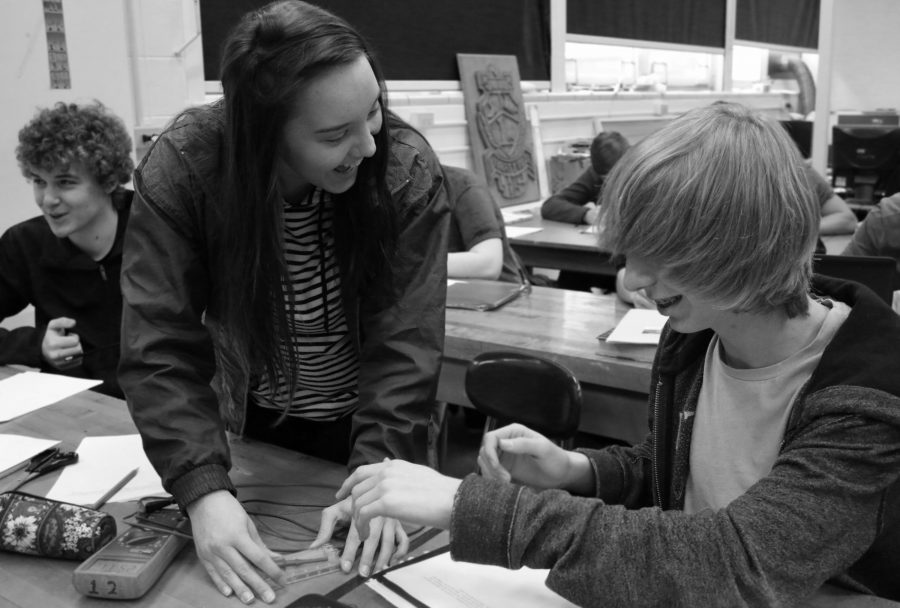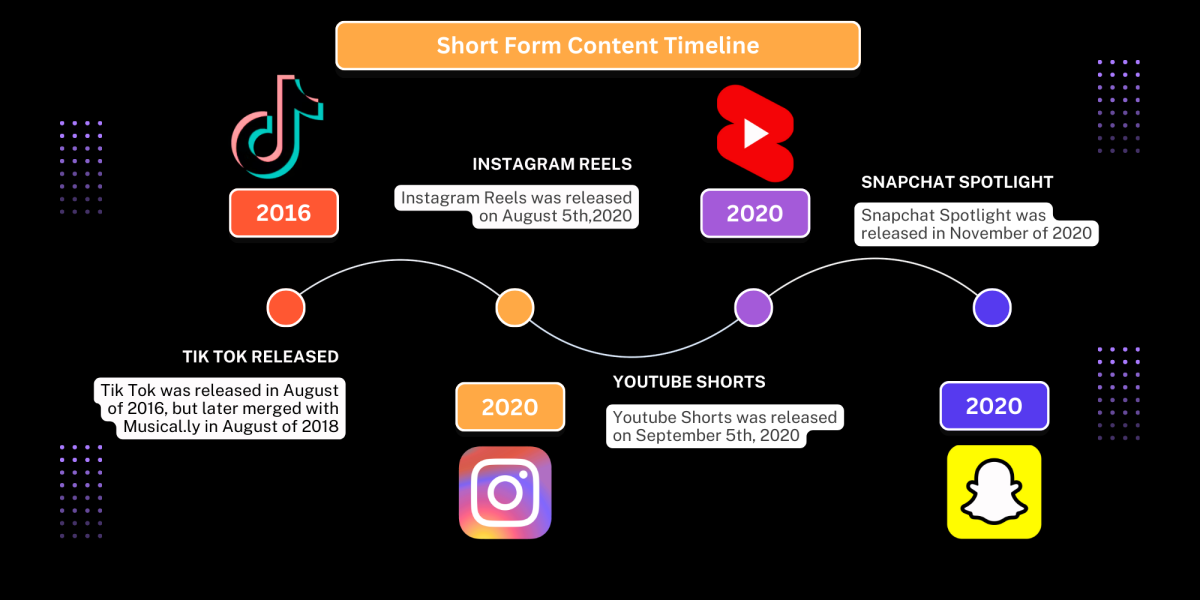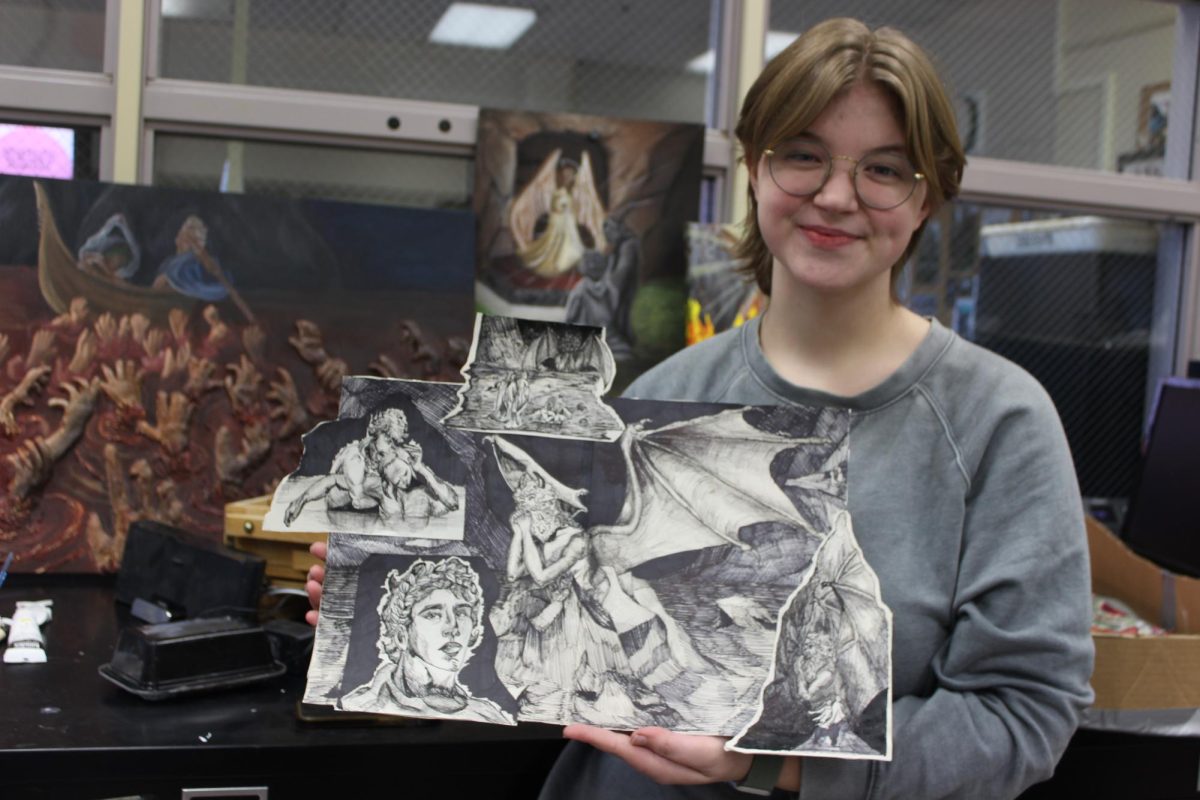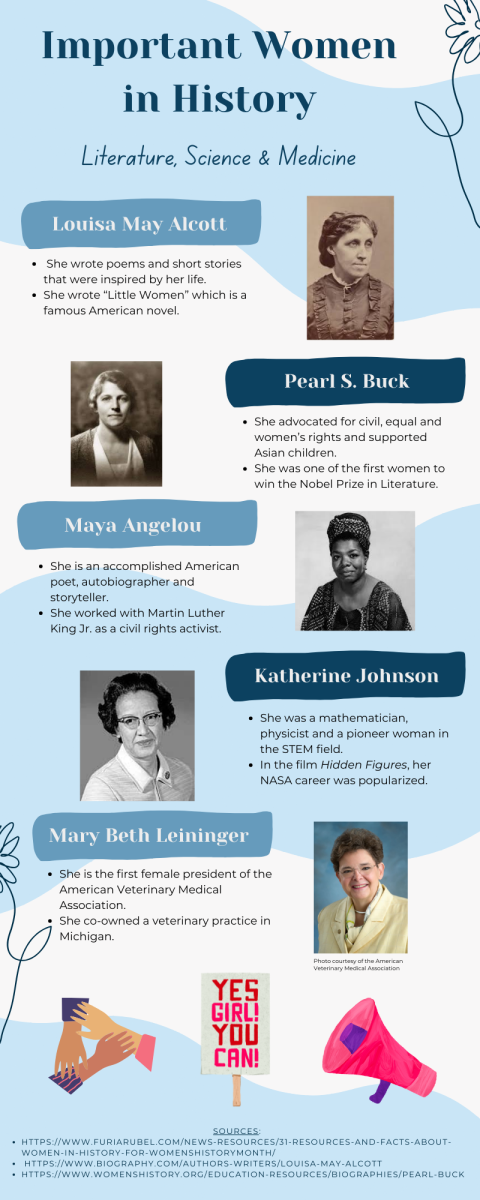Were you obsessed with GarageBand as a kid? Are curious to know what it takes to start a multimillion dollar company? Do you have an outlet in your house that hasn’t worked properly since you were 4? Ever wondered if you had what it took to raise a newborn?
If your answer to any of these questions was yes, then maybe it’s time to explore lesser known classes that LHS offers, including Electronic Music, Entrepreneurship, Electronics and Infant Development.
Electronic Music
When most students think about music at LHS, orchestra, band or choir usually come to mind. However, many forget that there are more music classes, like Guitar, offered at the school. One of those classes is Electronic Music, a fairly new addition to the curriculum.
The course ran for the first time in the 2015-16 school year. Electronic Music uses technology, such as computers and Musical Instrument Digital Interface (MIDI) keyboards, in order to create different beats and rhythms. In addition to learning this technology, students learn a bit of music theory.
According to the course’s teacher, Mr. Matthew Karnstedt, the course is “very student-centered.” The rubrics for projects are relatively general to allow students to explore whatever types of music interests them.
“If you want to explore creating a hip hop beat, then there’s room for that; if you want to make dubstep, there’s room for that,” Mr. Karnstedt expressed.
Unlike many of the classes within the music department, students do not need any prior experience in this area in order to enroll in the course. “Students can pick up [Electronic Music] from day one rather than having to go through a middle school band program to get to where they are now,” Mr. Karnstedt explained.
Entrepreneurship
As many students have started to discover, students are not as limited by their age as they once were. Students are now able to create incredible things and become a part of the adult world. As the Entrepreneurship teacher, Mr. Bill Reichert, said, “starting your own small business has never been easier with all of the technology that’s available.”
Entrepreneurship is a part of the Business Department at LHS. As well as Entrepreneurship, the department’s offerings includes classes such as Accounting, Marketing, and Management. The course is designed “for students who have an interest in starting and running their own business,” stated Mr. Reichert. “We try to cover the basic areas that kind of serve as pitfalls to people who strive to do that and interfere with them achieving their goals.”
Current events are a very important element of the course. “I never teach out of an old textbook. Everything we learn is tied to right now,” Mr. Reichert said.
In the near future, Entrepreneurship will count towards what the department is considering an LHS Masters of Business Administration (MBA). “Any kids that take three business classes, to kind of diversify their knowledge base and have a good broad perspective on things, we’re gonna give them this honor of having earned a Libertyville MBA,” Mr. Reichert explained.
Mr. Reichert believes that this is something students can put on applications to show their experience in business; students who have earned the LHS MBA may also receive a shirt and certificate.
Electronics
Although most electrical problems in a house are simple to fix, most people do not have the knowledge to fix them, making the task significantly more complicated. That’s where classes like Electronics come in handy. “[Students] learn about how electronics works, how it’s important, [and how to] complete a circuit,” Electronics teacher Mr. Andrew Thomson explained.
Unlike many of the academic classes taught at LHS, Electronics is a very hands-on course. “I’m not sitting up front lecturing all the time,” Mr. Thomson said. “It’s taking what you learned in physics and applying it here.” Although the class has no prerequisites, there are many classes, like physics, that teach material that can be applied to Electronics.
Electronics deals with many practical applications of what is taught, such as wiring of outlets and lights in a house. “I’ve had many students go home then and fix a switch that’s been broken for years all of a sudden [because] they know how to do it,” Mr. Thomson stated.
Since electrical problems are almost inevitable sometime during one’s lifetime, it is a great money-saving skill for students to have. Mr Thomson explained that “an electrician right now [makes] around 120 dollars an hour.”
Infant Development
Although many students are familiar with the Preschool Program, less are aware of the Infant Development class. Infant Development deals with relationships, pregnancies and newborns, the things that happen prior to that preschool stage.
One of the activities that the class is known for is “Baby Think it Over,” which uses a computer-programmed baby doll. The company that created the dolls “had new moms do a record of when their newborns needed to be fed, changed, burped, and rocked,” Mrs. Kristin Tarrant, the Infant Development teacher, explained.
The dolls are then programmed with this information and simulate what it is like to actually raise a newborn. “Students will take the baby from Friday after school until Monday morning when school starts. And they’re basically in charge of the baby over the entire weekend,” Mrs. Tarrant elaborated.
Since the dolls are supposed to simulate what it would be like to raise a newborn, throughout the weekend, the dolls will cry at random times, including daytime and nighttime, for a variety of reasons including needing to be rocked or fed.
While this may seem exciting to some, others are terrified by this prospect. Because of this, Mrs. Tarrant has created an alternative assignment for those who do not wish to take part in “Baby Think it Over.”
Despite all this, senior Brittany Barrera, who was in the class last spring, thinks that the experience with “Baby Think It Over” was worth it. “I recommend taking the baby home, even though during the moment you might not like it because of the crying and everything. [It] is actually a really fun project you can do,” Barrera expressed.
The class itself is very discussion-based. Mrs. Tarrant said that “students are really able to voice questions that they have, to talk about things that they maybe wouldn’t talk about in other classes or with other people.”








